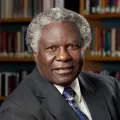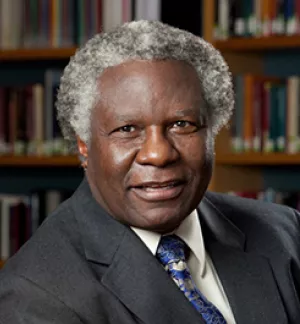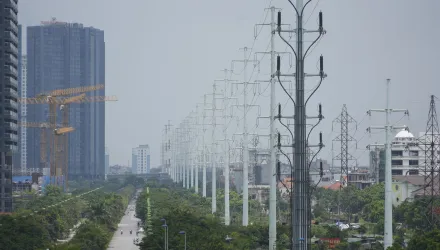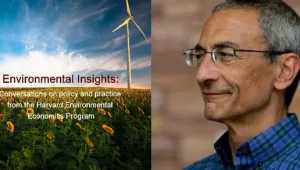In a bold move, the UK Government has announced the creation of a £1 million prize for a new “grand innovation challenge.” According to Prime Minister David Cameron, the award would go to the next “penicillin” or a plane that could fly carbon-neutral across the Atlantic.
This effort will complement the £1 million Queen Elizabeth Prize for Engineering. The inaugural prize will be awarded to the inventors of the Internet and World Wide Web in London on June 25, 2013.
The prize will not only recognize those who come up with outstanding ideas, but it will also serve as source of inspiration for young people. Getting the youth to focus their creative energies on solving the world’s pressing challenges needs to start early, especially in high schools.
Indeed, Kent School (Connecticut, US) has launched a pioneering program, Summer Educational Experience at Kent (SEEK), to prepare students to tackle the problems outlined by the US National Academy of Engineering’s Grand Challenges for Engineering report.
This one-week program on Grand Challenges for Development was organized in conjunction with the Science, Technology, and Globalization Project at Harvard Kennedy School and involved high school students from Kent School, Middlesex School, and Little Red House & Elisabeth Irwin High School.
Program staff included faculty, speakers, and student mentors from Harvard School of Engineering and Applied Sciences (SEAS), MIT, Boston University’s Department of Biomedical Engineering, and Sugar Labs Foundation. In addition to Kent faculty, students also benefited from the school’s alumni who shared their life-long experiences in solving engineering challenges.
In her keynote, Dr. Sujata Bhatia from SEAS stressed the role of engineers in solving societal challenges in fields such as sustainability (solar power, fusion energy, carbon sequestration, and nitrogen cycle); human wellbeing (clean water, infrastructure, health, medicines, and the human mind); security (nuclear terror and cybersecurity); and learning and discovery (virtual reality, personalized learning, and tools for scientific discovery).
Based on the list derived from the NAE report, students broke into working groups and decided on four challenges to address: clean energy for rural areas; water desalination; personalized learning; and reverse innovation.
The energy working group used rural China as a reference point and proposed the use of biomass and wind energy as a way to power rural development. The group was motivated by the view that readily accessible renewable energy is essential for promoting economic development in rural China and in other poor regions around the world.
Motivated by similar societal concerns, the second working group explored ways of providing clean water to coastal populations through desalination. The group sought to address the energy needs for desalination by tapping into tidal power and other renewable energy sources.
In response to the lack of access to technical education in poor regions globally, the third group worked on ideas that leverage emerging low-cost technologies for personalized education. The group explores the potential of deploying technologies such as Raspberry Pi, BRCK, and others.
In a notable departure from the standard grand challenges list, the fourth group chose to develop the idea of “reverse innovation”—a term used by GE’s CEO Jeffrey Immelt and popularized in a namesake book by Vijay Govindarajan and Chris Trimble. The group focused on finding a way to spread prosperity in emerging economies by globalizing innovation.
SEEK was conducted through lectures, field visits, discussions, and hands-on activities. The lectures covered themes such as engineering in economic history, engineering for better health, engineering for clean energy, and engineering education. Students visited the agricultural and mining museum of the Connecticut Antique Machinery Association, the Emergency Room of Sharon Hospital, and a fuel cell plant operated by AMERESCO in Middletown, Connecticut.
The focus of field visits was to understand the role of engineering in solving societal challenges. At the agricultural museum students explored the role of engineering in agricultural transformation and its links with industrial revolutions around the world. At the hospital students learned how advances in medical engineering have helped to improve human health. The fuel cell plant was an opportunity to explore the linkages between scientific principles and engineering design.
The students benefited from mentoring by undergraduate and graduate students from Harvard, MIT, and BU. Mentors spent long hours helping students refine their ideas, sharing experiences, and providing guidance on college life.
The students also benefited from hearing from Kent alumni. Dr. David Mueller shared his life experiences from Kent (class of 1963) to his graduate days at MIT and as a senior manager at Chevron. His experience spans several decades of work throughout the world.
He stressed the importance of continuous improvement. “Things do not have to be bad to make them better,” he advised the students. He urged them to find good role models and mentors. “School ends but learning continues,” he said.
The students also received introductory lessons in programming from Walter Bender of Sugar Labs. Mr. Bender emphasized the difference between “education” and “learning.” He noted that the best learning opportunities are associated with solving practical problems. He challenged conventional views of “carrots and sticks” as a way to motivate the youth to address global challenges. Instead, emerging evidence supports the view that the best incentives are autonomy, mastery, and purpose.
By the end of the week the groups had outlined their own challenges, offered solutions, and identified their economic, social, political, cultural, and ethical aspects. They benefited from feedback from other students as well as Kent teachers, mentors, and the visiting faculty and speakers.
Bringing the task of global grand challenges to high schools is an important way to engage the youth and enrich their educational experiences. This can help the global community avoid George Bernard Shaw’s lingering worry that: “Youth is wasted on the young."
Juma, Calestous. “Preparing Youth to Solve Global Grand Challenges.” June 24, 2013





